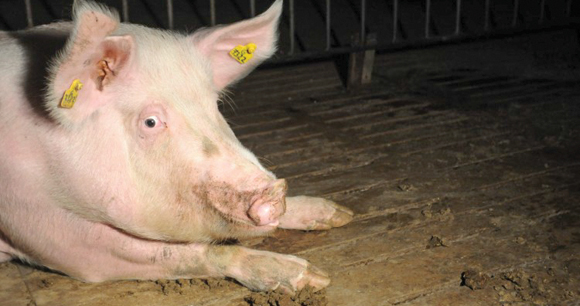In February, AWI and a coalition of animal groups sued the USDA for its decision to deny a petition asking the department to ban the cruel practice of slaughtering nonambulatory disabled (NAD) pigs. NAD animals are those who are unable to walk or move on their own due to illness, injury, or fatigue. These animals are more vulnerable to abuse at slaughterhouses—workers often try to force them to move by kicking, dragging, shoving, or even electroshocking them.

The USDA’s failure to regulate and prohibit the slaughter of NAD pigs gives unscrupulous producers incentive to force animals to rise using such violent methods and to continue sending sick and injured pigs to slaughter. NAD pigs are also at a higher risk of carrying human-transmissible pathogens, because they are held longer than ambulatory pigs, often in feces-ridden pens. This violates the Federal Meat Inspection Act (FMIA), under which the USDA is required to prevent the sale of meat that, due to disease, is unfit for human consumption.
Because NAD animals are at a higher risk of being abused and transmitting disease, AWI and co-plaintiffs believe that the USDA acted arbitrarily in denying the rulemaking petition. The outcome of this case has the potential to affect over half a million pigs who arrive at slaughterhouses each year unable to rise. AWI will update its members on the progress of this important lawsuit as it proceeds through the legal system.